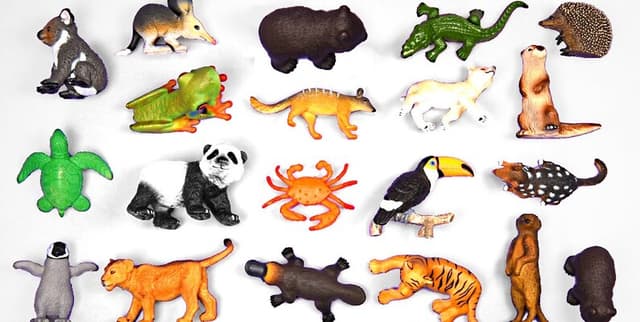Animal Feature Identification Data
Data Science and Analytics
Tags and Keywords
Trusted By




"No reviews yet"
Free
About
Explaining data focused on animal attribute classification derived from a database of zoo animals. The primary goal is to predict the type or class of an animal using a set of 17 descriptive features. These attributes are predominantly Boolean values, detailing various physical characteristics and behaviours of the creatures. The feature designated as 'type' serves as the necessary class attribute for modelling purposes. Note that the 'animal' feature functions as an identifier and should be disregarded during model training.
Columns
The dataset contains 18 columns, primarily consisting of Boolean attributes (yes or no):
- animal: The name of the animal (an identifier, though it is not unique).
- hair: Indicates the presence of hair.
- feathers: Indicates the presence of feathers.
- eggs: Indicates if the animal lays eggs.
- milk: Indicates if the animal produces milk.
- airborne: Indicates if the animal can fly.
- aquatic: Indicates if the animal can swim.
- predator: Indicates if the animal is a predator.
- toothed: Indicates if the animal has teeth.
- backbone: Indicates if the animal possesses a backbone.
- breathes: Indicates if the animal breathes.
- venomous: Indicates if the animal is venomous.
- fins: Indicates the presence of fins.
- legs: A numeric feature indicating the number of legs (ranging from 0 to 8, with a mean of approximately 2.84).
- tail: Indicates the presence of a tail.
- domestic: Indicates if the animal is domestic.
- catsize: Indicates if the animal is approximately the size of a cat.
- type: The classification attribute, containing 7 unique types, with ‘mammal’ and ‘bird’ being the most frequent.
Distribution
The data is available in CSV format, titled
zoo.csv, with a file size of 15.63 kB. The structure consists of 18 columns and 101 valid records. All reviewed attributes have zero mismatched or missing entries.Usage
This dataset is ideal for entry-level machine learning applications. Use cases include:
- Predictive modelling to classify animals based on attributes.
- Testing and validating classification algorithms.
- Practising multilabel classification tasks.
- Educational tutorials for beginners in data science.
Coverage
The data covers attributes used to describe a variety of creatures typically found in a zoo context, focusing on biological characteristics. There is no specified geographic range, time period, or specific demographic scope, as the dataset is purely attribute-based.
License
Attribution 4.0 International (CC BY 4.0)
Who Can Use It
The primary intended users are beginners in machine learning and data science who require a straightforward classification problem. It is also suitable for academics or practitioners looking to quickly prototype or test models using simple, highly structured attribute data.
Dataset Name Suggestions
- Zoo Animal Attributes Classification
- Animal Feature Identification Data
- Classification of Zoo Creatures
Attributes
Original Data Source: Animal Feature Identification Data
Loading...
